Interview: First details on the $99 MiSTer FPGA clone board aiming to stop "people getting screwed" on overpriced hardware
Taki Udon talks about cutting the price of the MiSTer's DE10-Nano board in half. Plus, emulating the PS1's weirdest controller and Tokimeki Memorial's... arcade version?
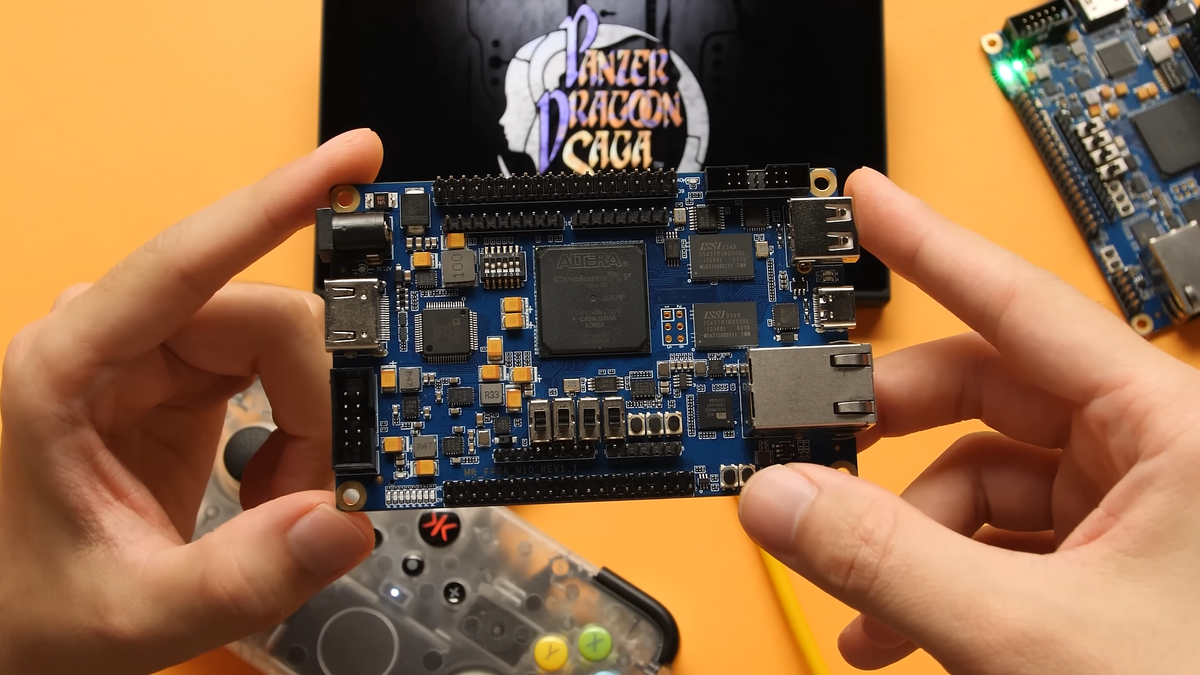
There was zero question what would be our top story this issue — if there's one thing I love more than retro hardware it's a bargain, so YouTuber Taki Udon's video about a $99 clone board for the MiSTer FPGA set off all the hype sirens in my brain. Playing all the old games and saving money, simultaneously? Hard to get better than that.
I got in touch with Taki to ask a few questions about the project beyond what's already available online, then rounded up all that information for what is hopefully a very thorough breakdown of what this new MiSTer board entails, including when you might be able to get your hands on it. As life is busy busy right now, I've kept this issue a wee bit short by skipping a second featured topic. There's quite a bit to chew on in Patching In and Core Report anyway, whether you're into MAME, the Analogue Pocket, wacky PS1 controllers, or other oddities. It's a diverse field of patches and core releases this week!
I've also got a few fun things to highlight in this here intro. First up, friend of the newsletter Ray Barnholt (check his guest column in an old ROM!) has launched a very fun YouTube channel called LowPolyTown, which pairs chill music with a controllable stream of 1996 PS1 sim A-Train 5 (emulated, natch). It's also on Twitch if that's more your bag. You can control the camera with chat commands, and Ray describes it as "Lofi Girl meets Twitch Plays, minus the point."

Ray wrote about the background for LowPolyTown if you're interested in how it came about: "The germ of this idea came years ago as I was playing with the game's 3D 'Tour' mode ... while placing the camera at a nicely composed angle and watching the town go from day to night, I thought, this might make a neat livestream — as a goof, to be sure, and just as an ambient, passive "webcam" thing."
Even if you're not into watching low poly trains and trucks driving around, the music's great background.
Finally, before we get on with the main event, a quick catch-up on the latest in the rapidly expanding iOS emulation scene! The Delta emulator will soon be updating its DS core, while the Provenance multi-system emulator (as usual with these things, implementing other emus as cores) is coming in hot. A Test Flight build is now available on its Patreon. Provenance had a Yuzu core impacted by that giant Nintendo DMCA on Github this week, so I imagine that may not be making the iOS release.
Delta remains in the top 20 free apps on the App Store. While not quite as impressive as being #1, it's still ranking about Doordash and Gmail, so I think it's safe to say interest remains high.
Speaking of that Nintendo DMCA — I wrote a bit about that over at PCG, but it does feel like Nintendo just mopping up and ensuring no one can easily pick back up developing Yuzu on Github. While the code will obviously remain quite easy to find online no matter how hard Nintendo tries to stamp it out, I do wonder if it feels tainted or risky enough at this point that no one will really want to touch it. We'll see if Sudachi, one of those successor projects, gains any steam. Otherwise, Ryujinx may be the only future for Switch emulation long term.

One final shout out — I had the pleasure of guesting on the next episode of Retronauts to talk all about emulation, along with Zophar of pioneering '90s emulation site Zophar's Domain! The episode is currently on the Patreon feed but should be out on the free feed this week! Please to enjoy. And if you're coming here from Retronauts, hello, welcome, glad to have you. Videogames forever. 💽
The Big One
1. Let's talk to Taki Udon about how the heck he's building a $99 MiSTer

The DE10-Nano board that serves as the basis for the MiSTer currently costs $225 directly from its manufacturer Terasic. A little less if you can prove you're using it for academic purposes, a little more if you choose to buy it from a reseller who's already imported it all the way from Taiwan. Five years ago, the board cost around $100 less, but the common wisdom has always been that the DE10-Nano is still a deal.
What if it isn't, though?
"From what I can see, people expect the price that they see for components on Digikey to be a good representation of how much that costs to manufacturers, and it doesn't work like that," gaming handheld YouTuber Taki Udon told me. "So for the longest time, people kept saying that the DE10 board was still cheap at ~$200 because Intel is subsidizing a $300 FPGA."
That big old assumption? Wrong!
While the popular DE10-Nano board itself may be getting pricier every year, the Cyclone-V FPGA processor made by Intel subsidiary Altera is apparently far more reasonably priced than anyone expected, and certainly far cheaper than the DE10-Nano makes it seem.
Taki Udon, who lives in China and has been involved in the design process of some handhelds, set the MiSTer community abuzz this week with a video about a $99 MiSTer board that aims to give players the same functionality as the DE10-Nano at less than half the price. I immediately wanted to know more, so I got in touch with Taki and asked how this project came to be — and how they're doing it so affordably.
"I've been working in this field for around 5 years or so. FPGAs were never the central focus of anything my team made, but we did have products that used them," Taki said. "We started by buying a DE10 locally, which is even more expensive than the current price listed online. After we had that, we started studying how the MiSTer system worked and how the Linux side of MiSTer interacts with the FPGA. At that time, the goal was to make a successor to MiSTer based on a high-performance Xilinx FPGA.
"At the same time, we started looking over the DE10 schematics to create a [bill of materials]. Pricing out the stuff in the BOM showed that it was possible on paper to make a cheaper alternative for people who still wanted to use the existing MiSTer ecosystem/FPGA."
A couple months ago, Taki asked a colleague to try to clone the DE10-Nano, and before long they had a very close replica that drops some bits from Terasic's design and uses some cheaper parts, but should be able to deliver everything the MiSTer needs at a much lower price. That even goes for some of the add-ons.
For example, in the video above Taki shows a new 128MB RAM module that uses the same Alliance RAM chips as the go-to module for the MiSTer, which sells for around $60. The clone version "should cost $15 when it goes on sale," he says in the video. Same chips, same performance. But the real money saving is in cloning the functionality of the DE10-Nano needed for the MiSTer and sourcing the FPGA processor directly from Altera.
While Taki didn't disclose the details of their deal with Altera, he said they had no prior relationship with Altera and gave me an overview of how reaching out to a manufacturer to inquire about a rate typically works, and how the prices they offer will likely be based on a few factors. The most relevant one here was volume — the smaller the number of units you're asking for, the higher a profit margin the manufacturer will bake into their price. Reading between the lines, I think he expects this board — and future FPGA products they're building with it — to be popular, which means a juicy order for Altera and a lower price per unit.
"Personally, I like going into a market and disrupting it, especially if I see people getting screwed," Taki told me. "My co-founder is the same. People are wondering if the DE10 board will drop in price to compete with us even though our board isn't meant for education. If they do that, the clone will drop too."
That means even if the board does end up selling for the $99 Taki put in his video title, they must be making a comfy profit. After seeing the potential for more budget-friendly FPGA devices, Taki co-founded a company dedicated to building not just this board by itself, but a range of consoles and handheld systems running on it. He told me the company is going to officially launch with another product that "isn't related to MiSTer in any way," with the gaming-focused hardware to follow.
There are a lot more little details about the MiSTer clone board worth digging into that Taki shared in our interview, in the above video, and also on Discord, so let's round 'em all up, bullet style:
- The clone board has a USB-C port and a USB-A port in place of the DE10's mini and micro ports. The JTAG port has been switched to a header
- MiSTer project creator Sorgelig got in touch with Taki Udon and suggested another USB header and a power header "so you don't need those dongles connecting the boards together"
- The board can be powered by 5V or 12V DC
- I asked Taki about whether the board could still support dual RAM sticks for 256MB of total RAM, which I believe has some limited use cases but isn't required. He said he wasn't sure and only knew about the 128MB module they plan to sell. But I visually confirmed the new budget board has two 2x20 GPIO interfaces just like the DE10, so in theory it should work exactly the same.
- They may sell a simple case: "We are thinking about making a clear top shell with stands like the DE10, but we want to leave room for community cases," Taki said
- In terms of future products: "There's going to be a console version that includes everything that's in the analog I/O, USB daughter, digital I/O, soldered SDRAM, and a bunch of SNACs for around $200-$250." This "flagship" console model "is meant to reproduce all of the functionality of popular add-ons + one other awesome feature that doesn't exist in other options"
- The planned order of product releases: "PCB > Flagship > Handheld > Mid-tier > Cheap cart console"
So the big question: When will you be able to buy one? Taki gave me a more specific estimate than I expected here: "Could be within 2 months."
That's not a guarantee, of course, and as Taki says in the video above there's still another revision of the board that needs to go through testing, and they also need to test it with the MiSTer's various attachments and so on to ensure compatibility. So the release date could change, and it seems like the plans on how to sell this thing are very much still coming together right now.
Until the MiSTer dev community have the device in-hand I expect a certain amount of uncertainty is going to keep swirling around the clone board's performance, compatibility, and stuff like shipping prices. But if all the pieces fall into place and it really does cut the entry level price for the FPGA community — and then leads to a MiSTer handheld?

"I'm excited for this to release as a cheap option, and I'm excited to see what people think about the next console that we have on the way," Taki told me.
More soon — I'll be eagerly keeping up with this one.
Patching In

In BigPEmu 1.12, the Big P is a Big Patch – Rich Whitehouse has released a major update to his Atari Jaguar emulator after some downtime, which includes a native Linux port and support for Windows on ARM. Other technical additions include a SDL2 plugin for audio/video/input and a D3D12 video backend, and a debugging feature that anyone wild 'n' crazy enough to be doing Jaguar development will doubtless be psyched for.
PCSX2 now predivides ST by Q on large equal-Q triangles – Can you believe it wasn't already predividing ST by Q on large equal-Q triangles? 😂 Okay but actually, there are several game bugs fixed here, including sprites in Spongebob Squarepants: Revenge of the Flying Dutchman, Indy Car games, and the health bars in Biker Mice From Mars. Special bonus points for the Github branch these came from being called "i-like-big-floats-and-i-cannot-lie."
- Some other nice little PCSX2 fixes: Ramp graphics in Crash Nitro Kart, god rays in God of War 2 (so, Kratos rays?), and "Hollywood Hulk Hogan's entrance and slow-mo finisher in WWE SVR 2006 and 2007."
RPCS3 0.0.32 – The latest roundup of RPCS3 updates includes some savestate improvements, fixes for some crashes, and added emulation of the GunCon 3 accessory. (Reminder RPSC3 doesn't do stable builds, so always use the built-in updater for the latest and greatest).
DuckStation gets NeGcon support, with rumble – aka "that weird af controller you can twist." Remember this thing? Well, now you can have a virtual one.

Core Report

MAME .265 adds the ability to "plug a virtual Super Game Module into your emulated ColecoVision, adding more RAM and better sound output." I assume this is exactly like adding Knuckles. MAME also now supports the arcade spin-offs of Tokimeki Memorial which "used heart rate and galvanic skin resistance sensors and printed the results from your game." Do you get flustered when an anime girl smiles at you? Well, I just read the words "sweat rate" and now you have to too.
Tokimeki Memorial: Oshiete Your Heart (Arcade) was an adaption of the original console title that honed in on the "dating" elements. It utilized a unique sensor to gauge player emotions—the "Tokimeki Sensor"—which detected heart & sweat rate from the player's finger. pic.twitter.com/2haxW48EU8
— Game Vecanti (@gamevecanti) July 22, 2020
Irem M92 games added to Analogue Pocket – Well this is a bounty of shmups and action games including R-Type Leo and Ninja Baseball Bat Man (as featured in my second issue of this newsletter!). Looks like this one's still in development so patches may be en route. Separately there's also a port of SNK's Athena, but eh, maybe don't waste your time on that one.
Jotego cores go public for the MiSTer – Jotego's latest release arrived on May 3, making several games public for non-Patrons including Marchen Maze, The Simpsons, Parodius Da!, and Vendetta. A bunch are free for the Pocket as well.
Translation Station

Mega Man Legends 2 prologue demo – We may never get Mega Man Legends 3, but here's a real treat for the MML lovers who've wanted more for so long: Hilltop Works translated the Japanese-exclusive prologue demo "that has a bunch of unique content and cutscenes that aren't in the full game." MML2 Episode 1: Roll's Close Call was bundled with The Misadventures of Tron Bonne and included with the PSP port, but only in Japan. This translation patch is for a PS1 copy, which looks pretty easy to find on Yahoo! Auctions for under $10.
"Japanese-exclusive-Wii-games-translation-addict" brings us Golden Bonds – How many Wii RPGs are there that I've never heard of? At least a few, judging by the prolific work of Brand Newman, who has spent the last year and a half working on 2009's Golden Bonds, aka Ougon no Kizuna. This one came from Town Factory, the studio that co-developed Little King's Story and this and seemingly nothing else, which... might not be a shock when you watch the trailer. It looks to me a bit like What If The Last Story Sucked, but as someone commented on YouTube, "People passionately translating kusoge will always make me happy." See also: my ROM interview with the translator of the Famicom's "legendary shitty game."
Check out the GBATemp thread to see Brand talking enthusiastically about the project and what he likes about its art and music, even if the game ain't great on the whole. (There's also a nice bit about a QOL feature he added: markers to indicate which quests actually help you advance the story. That seems important!)
Good pixels

It's been a minute since we did a big PC-98 dump. As usual, it delivers the finest of pixels.
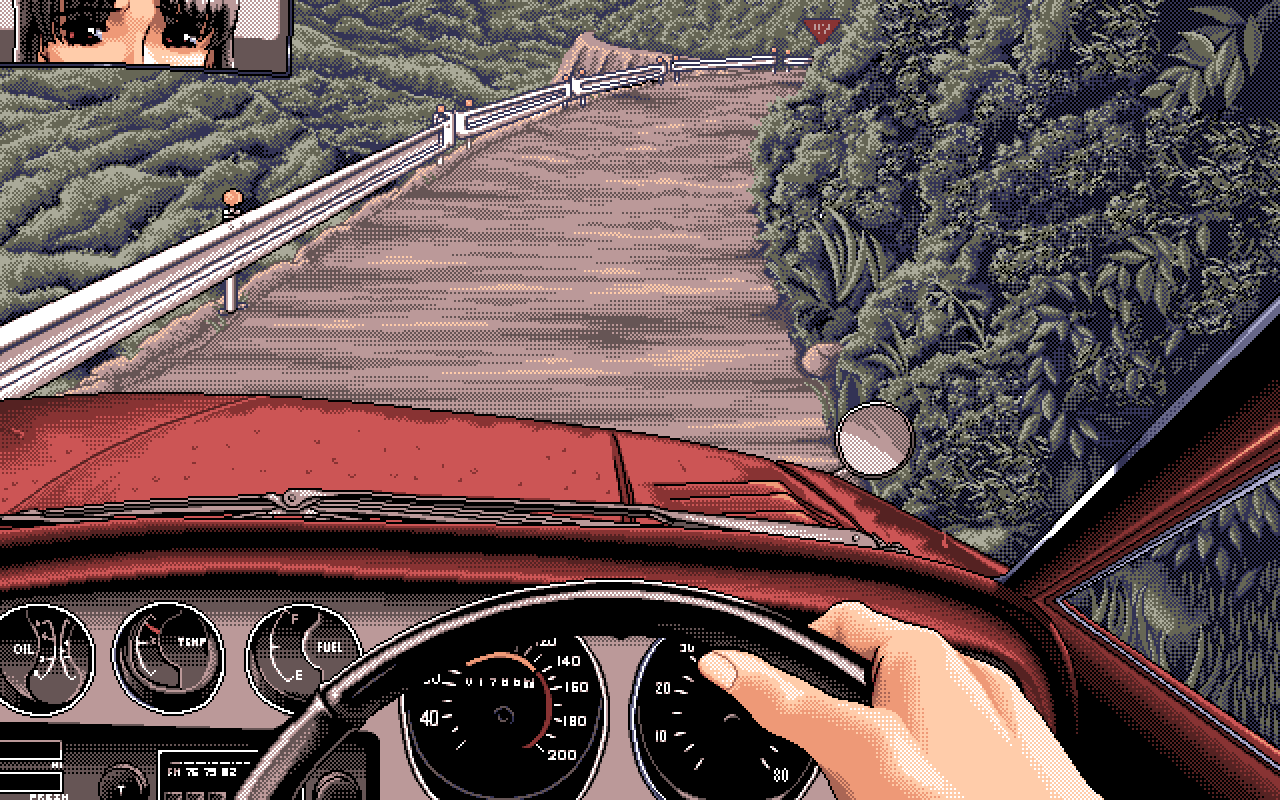
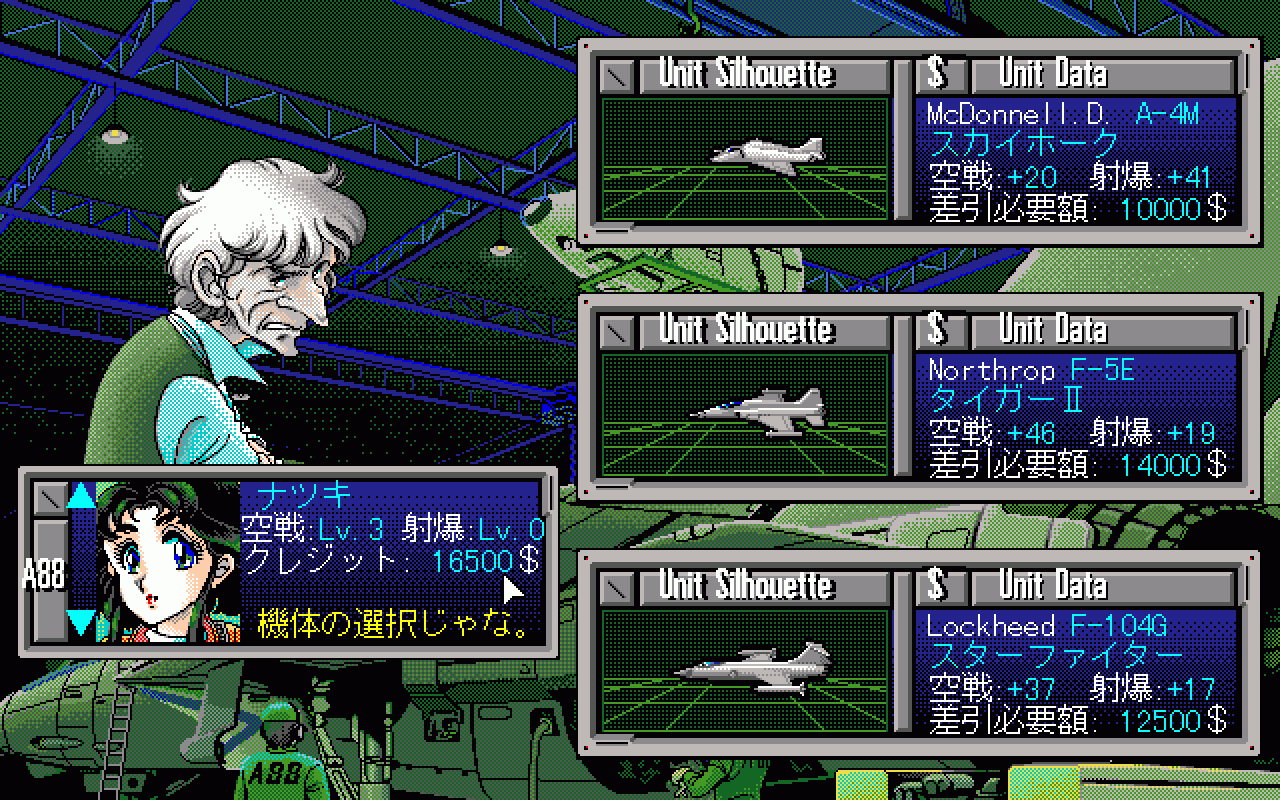
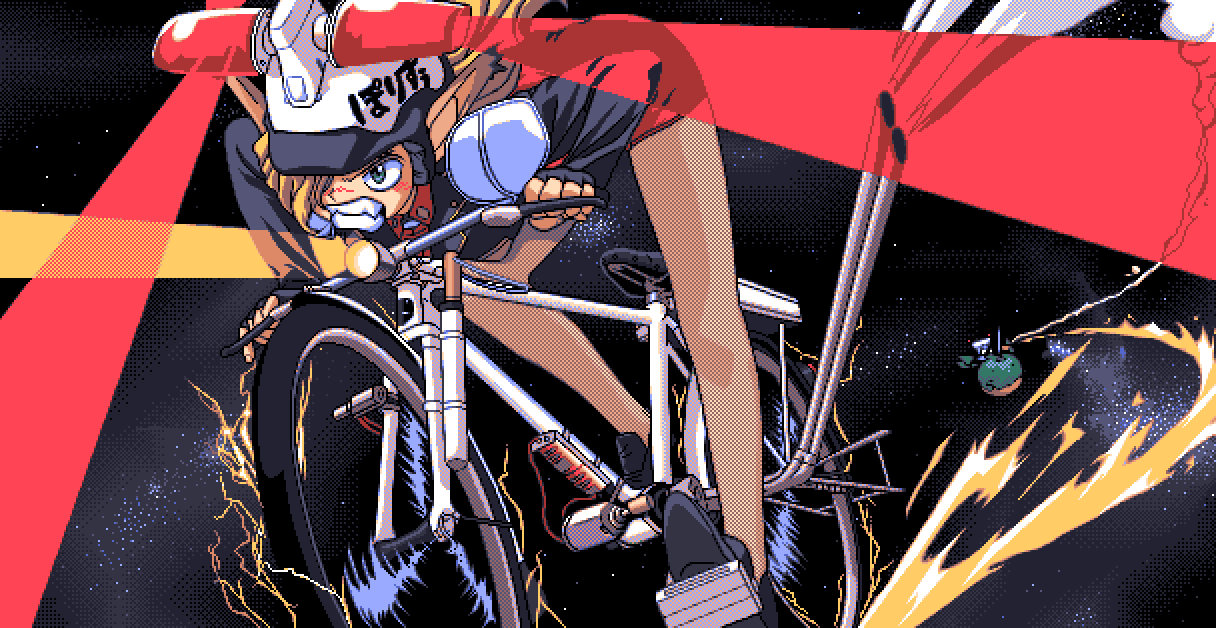
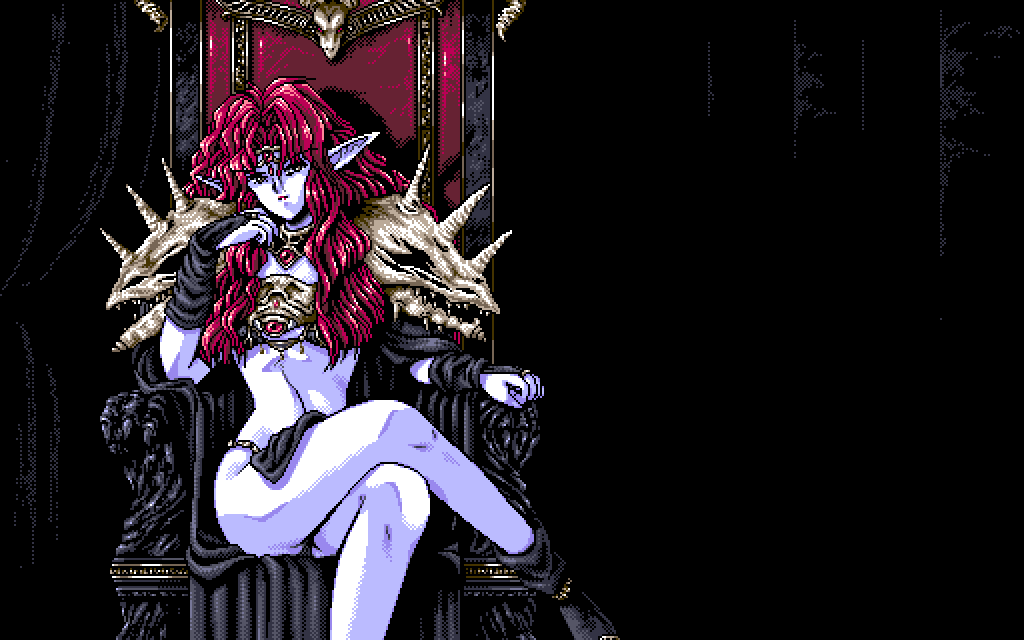
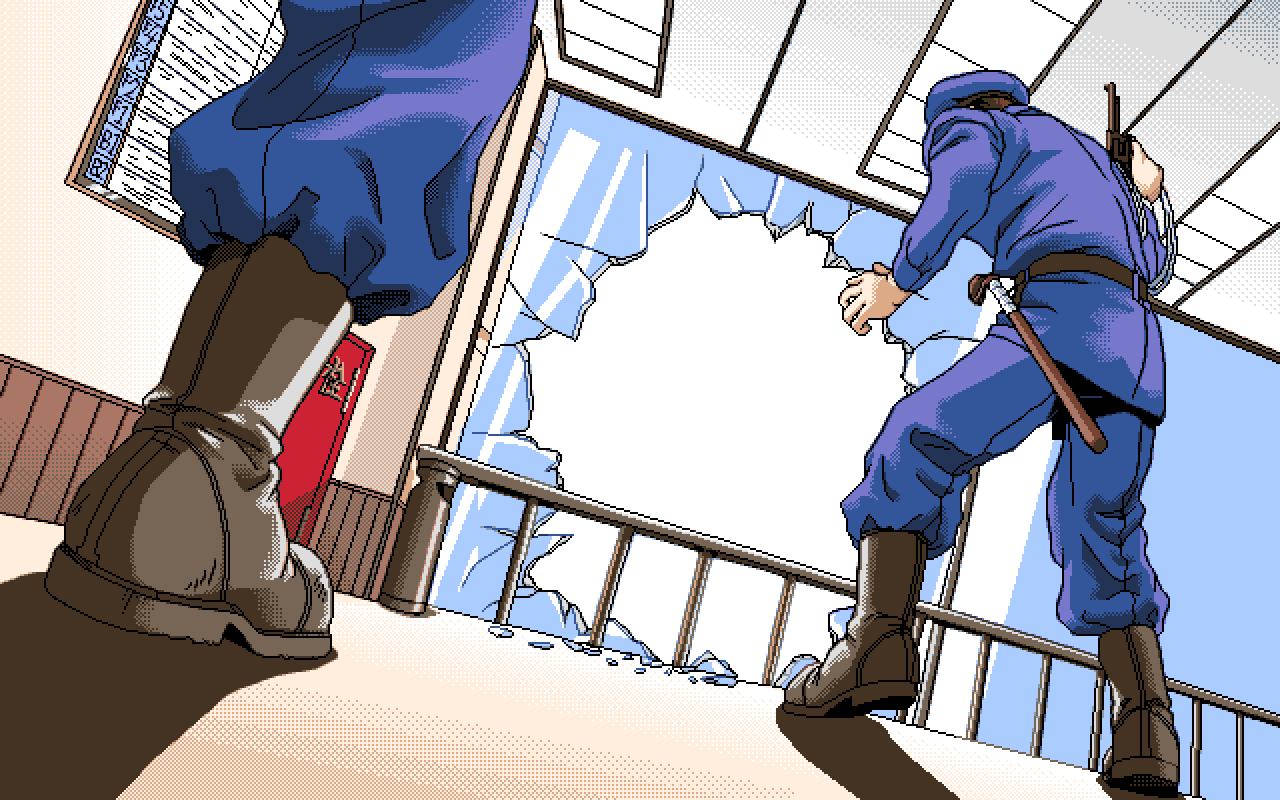
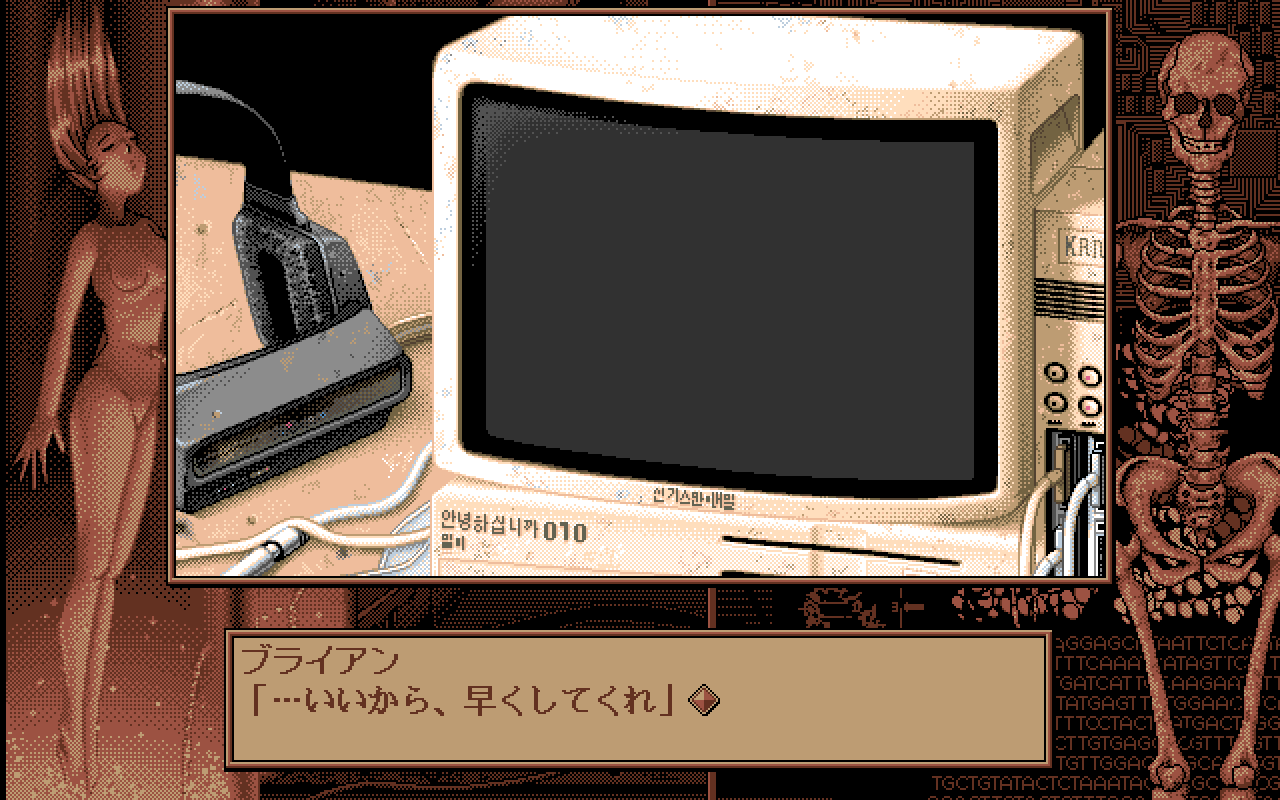

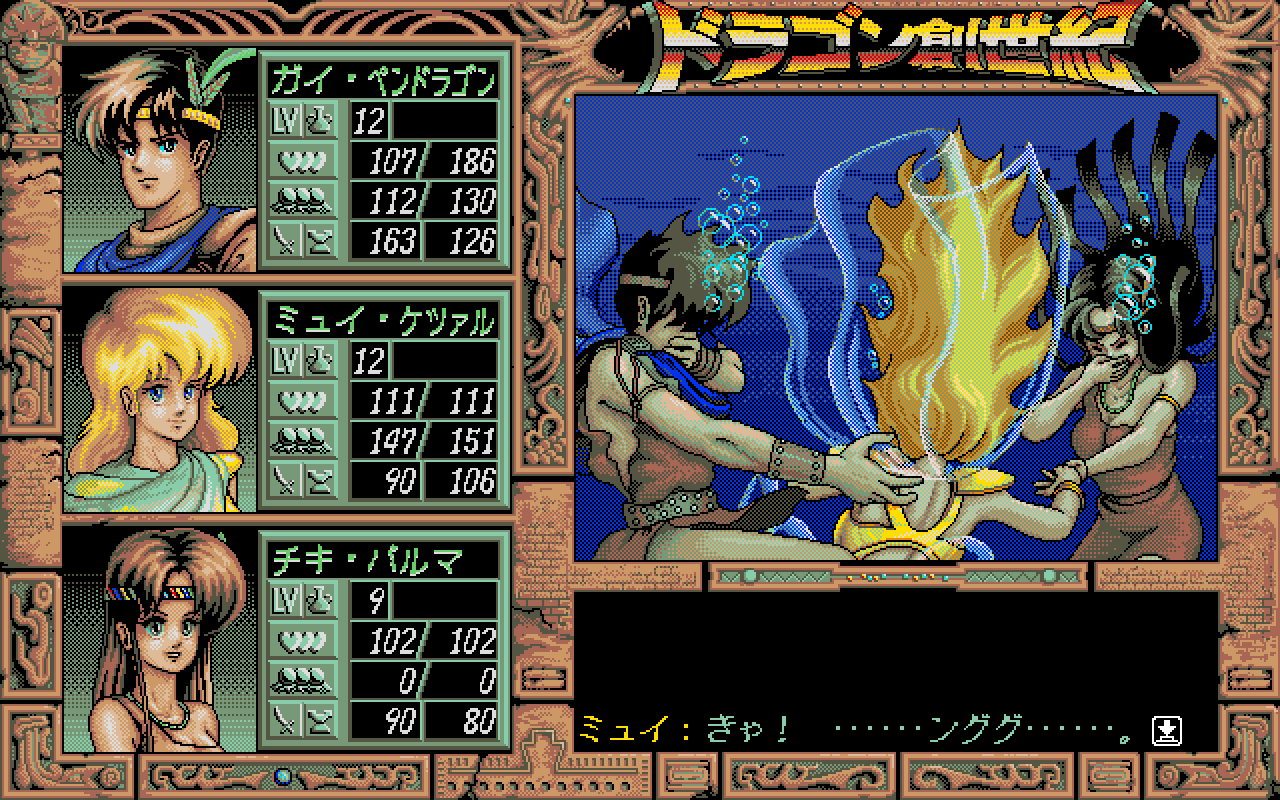
via Flat2D






